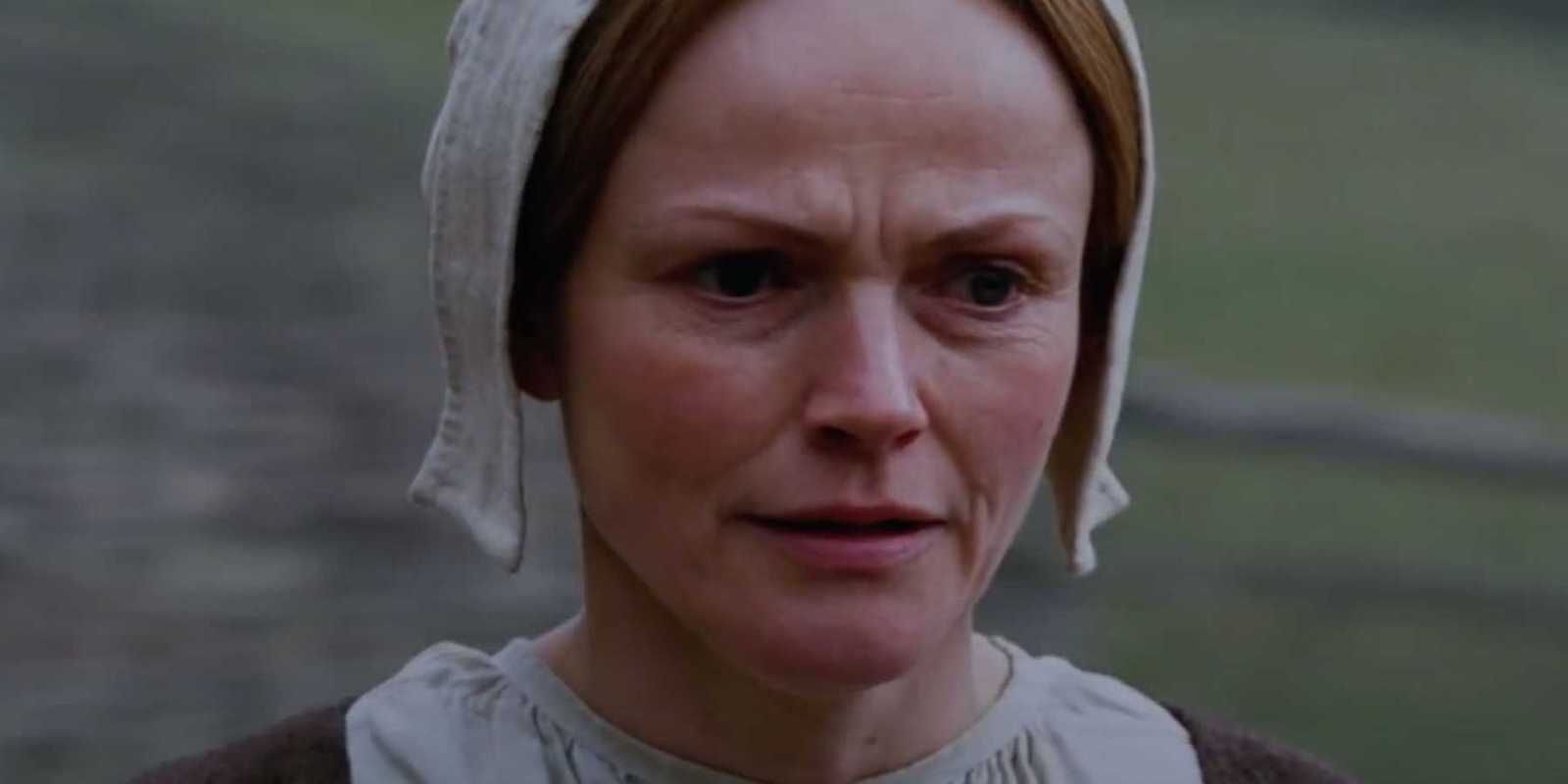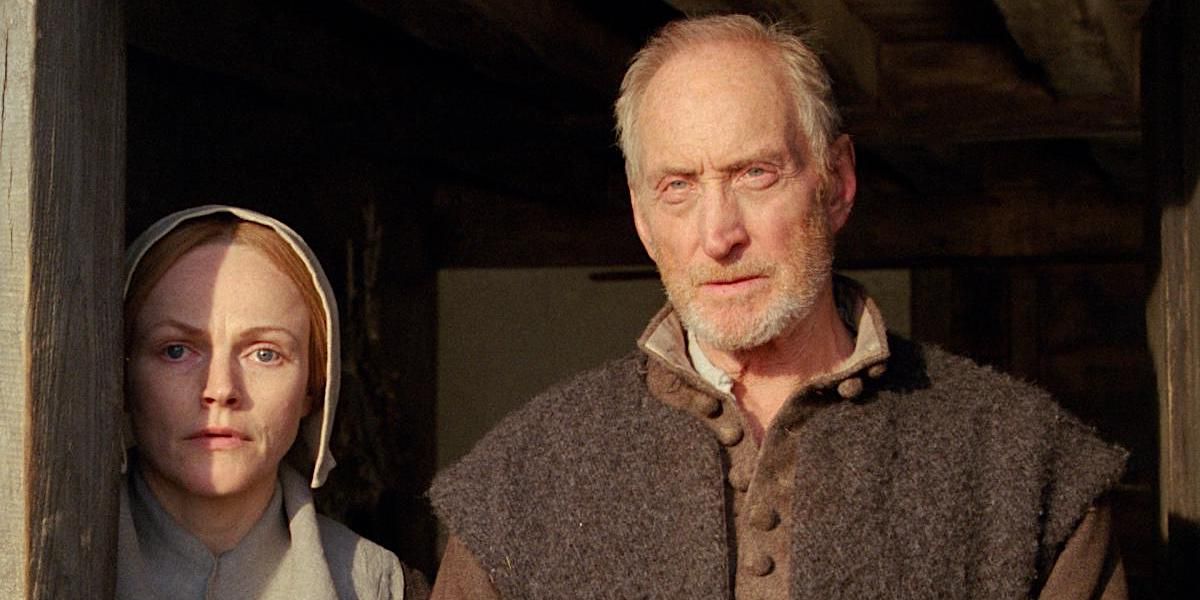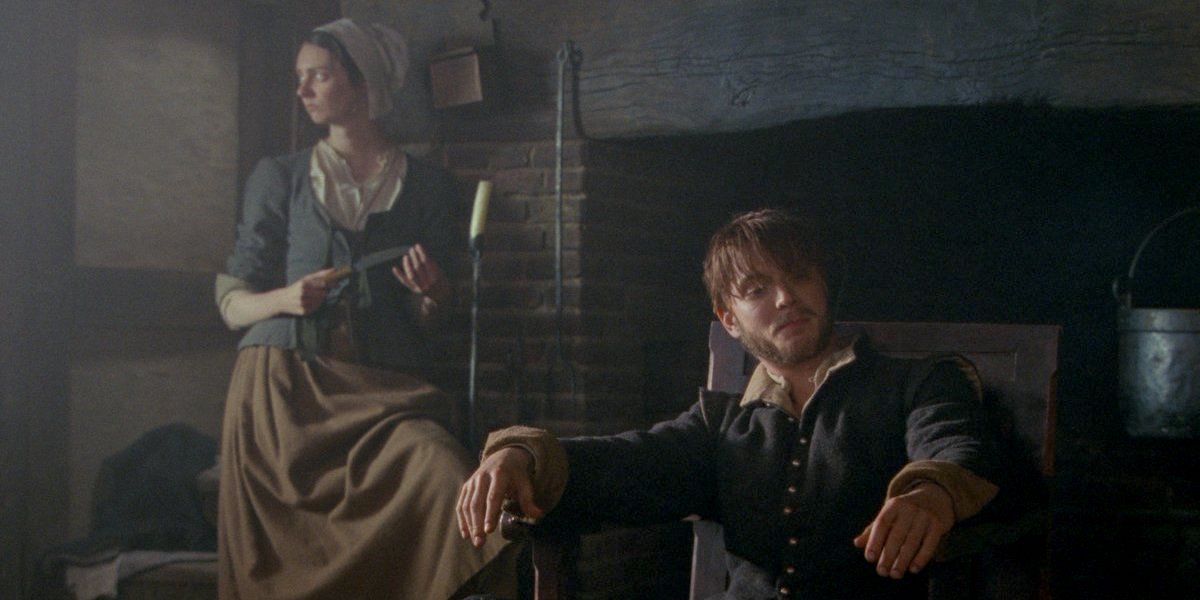After a critically acclaimed release in Britain last year, where it was known as Fanny Lye Deliver’d, The Delivered comes to VOD for American audiences with a much less memorable name and a story steeped in English history. A passion project for writer and director Thomas Clay (who also executive produced, edited and composed the film’s music), the low-budget film took years to make it to the screen, enduring numerous setbacks along the way. Though Clay’s dedication to authentically depicting the film’s period setting is admirable, the story -- which has been described as both a Puritan Western and a horror drama -- is too plodding for the periodic sequences of sex and violence to overcome. Meanwhile, the overall point the film is trying to make feels more mystifying than meaningful.
The Delivered centers on Fanny Lye (Maxine Peake) who lives a life of Puritan restraint with her much older husband, John (Game of Thrones’ Charles Dance), and young son Arthur (Zak Adams). It’s 1657, following the English Civil War and the family lives on an isolated farm in Shropshire County where the most exciting thing they do each week is go to church on Sundays. Fanny started life as a servant so she considered her station improved when John, a former soldier, married her. Yet within her marriage Fanny still mostly functions as a servant. She's expected to take care of the cooking, cleaning and child rearing, and is subjected to whippings whenever she does something John feels doesn't fall within the Puritan strictures that dictate their lives.
One day after church, the family finds a young couple, Thomas (Freddie Fox) and Rebecca (Tanya Reynolds), in their home. Thomas tells John a sob story about being robbed shortly after they were married and claims to be a veteran like him, which buys the strangers a hot meal, some clothes and a place to stay for the night. However, before they can be escorted off the property the next morning, a Sheriff (Peter McDonald) and his Deputy (Perry Fitzpatrick) show up with the town’s Constable in tow (Kenneth Collard). The trio are looking for a couple of heretics who escaped a nearby raid and it quickly becomes apparent Thomas and Rebecca are not what they claim to be.
From there, the movie’s middle section involves a series of philosophical arguments about religion along with several provocative displays by Thomas that he uses to make a point about the overbearing restrictions of Puritanism. This is capped by a final act of shocking violence that feels both inevitable and surprising in its brutality. These disparate plot elements make the movie feel strangely episodic for a story set in a single location over only a couple of days.
At key moments, the film shows fog drifting over the farm, which seems intended to evoke an aura of foreboding, but ultimately only serves to obscure the action and highlight the presumably vexing weather in the area. Meanwhile, the narration that breaks in to explain the action throughout the film is more successful at calling attention to the way events impact Fanny than her reactions alone. While the performances of the cast are strong throughout and Maxine Peake does a fine job showing the cracks in Fanny’s restrained existence, her small acts of rebellion never seem to add up to the rejection of her oppressive life the narration tells us she will eventually experience. Perhaps more importantly, the idea that anyone, even in the 17th century, would need to undergo such a horrific series of events to have their eyes opened to other ways of thinking is an appalling lesson. Clay reportedly did extensive research on the period, but several of the scenarios he creates feel more designed to titillate modern audiences than things that happened during the time.
That said, the farmhouse set where the story takes place is gorgeously designed both inside and out. The setting is so well rendered, I often found myself paying more attention to the detailed design work than the action of the story, and the costumes are equally well crafted. Because of this, the look of the film, at least, is convincingly immersive. On the other hand, the busy soundtrack and frequently overly active camera work, which includes extreme close-ups and circling shots, are often distracting and showy, pulling attention instead of subtly punctuating the plot.
As a whole, I found The Delivered to be a baffling movie experience. I appreciated the strong performances and design elements, but they don’t make up for the slow story, the pedantic arguments about religion or the movie's insistence that the terrible events of the film liberated Fanny. While the movie certainly has a specific point of view, I came away from it scratching my head instead of cheering for Fanny Lye’s newfound freedom.
The Delivered was written and directed by Thomas Clay and stars Maxine Peake, Charles Dance, Freddie Fox and Tanya Reynolds. It is available on VOD on Friday, Jan. 15.



